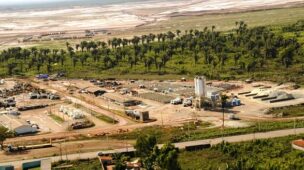Tempo de leitura: 2 minutos
Local Silicon Valley manufacturers are reaping significant benefits in product quality, lower costs, reduced tariffs and supply chain efficiency through strategic application of local Foreign Trade Zone (FTZ) operations in their manufacturing processes. Those were among the findings of a recent study published by The Reshoring Institute, a Silicon Valley-based non-profit organization providing research and support for companies bringing manufacturing back to America.
“Use of a Foreign Trade Zone involves how imported goods, such as parts or sub-assemblies, are brought into the U.S., staged and sequenced for manufacturing. The goal is to strategically time final assembly of goods to coincide with peak demand or until the market is ready for the goods,” said Rosemary Coates, Executive Director of The Reshoring Institute. “It’s a strategic supply chain strategy where companies, using an FTZ, can reduce, defer or in some cases eliminate import duties and taxes,” payment of which typically are triggered when material leaves the FTZ and enters U.S. commerce.
The study, which can be downloaded here, examined the FTZ operations of Fremont, Calif.-based RK Logistics Group, which operates Northern California’s only general purpose FTZ, and acts as a third-party logistics provider for several Silicon Valley manufacturers. RK has operated its FTZ in Fremont since 2016 and maintains 14 warehousing locations in the greater San Francisco Bay Area.
“RK is a great example of an FTZ which can support multiple clients in multiple industries,” noted Coates, adding that any business which imports parts and then assembles them into a finished product for sale in the U.S., or for export, can benefit from an FTZ.
Lean-based, just-in-time manufacturing depends on timely staging, delivery and sequencing into the assembly process of globally-sourced materials, as small as a bolt to a multi-ton sub-assembly, explained Coates. “The speed of a global supply chain can flex up and down as sourcing strategies shift and supply and demand parameters change,” she explained. “For any company looking to bring back or expand manufacturing operations in the U.S., an FTZ can be a quickly deployed, viable strategic option that has both service and cost benefits.”
FTZ’s are an important element in support of reshoring, the Reshoring Institute noted in the study. “Operations within an FTZ, whether manufacturing, kitting, warehousing or repairing goods, create jobs for Americans that might otherwise exist overseas,” Coates said. In addition, there is the magnifier effect on local economies. FTZs can facilitate other commerce through jobs such as trucking, import processing and documentation, and other logistics-related activities.






Os comentários foram encerrados, mas trackbacks e pingbacks estão abertos.